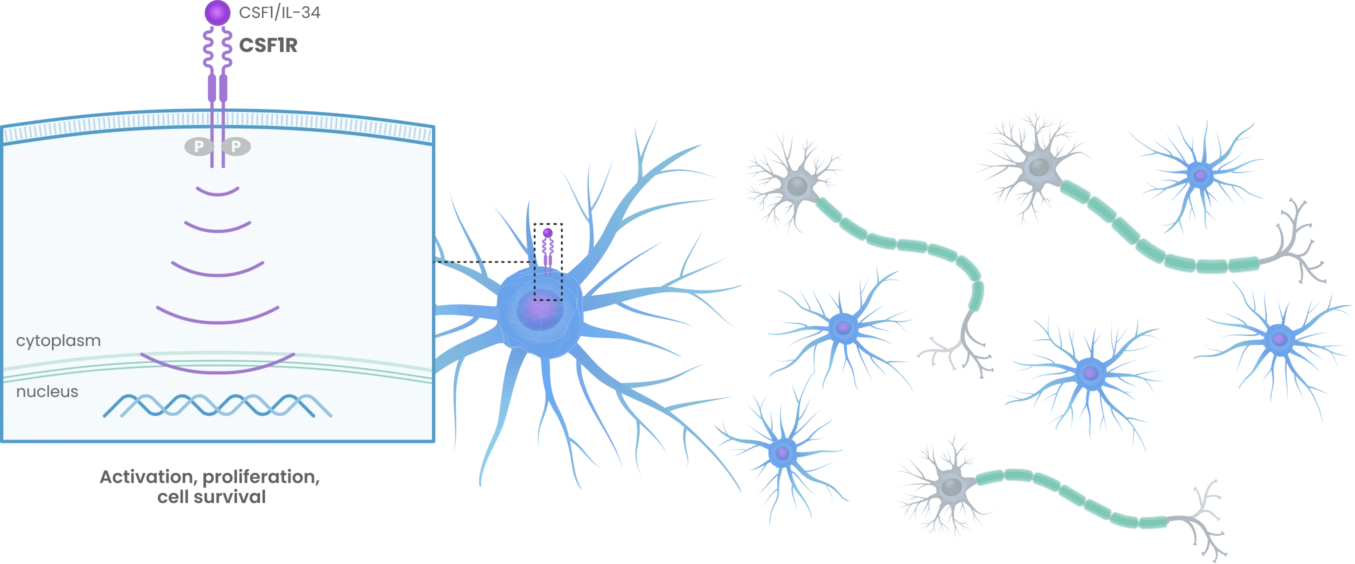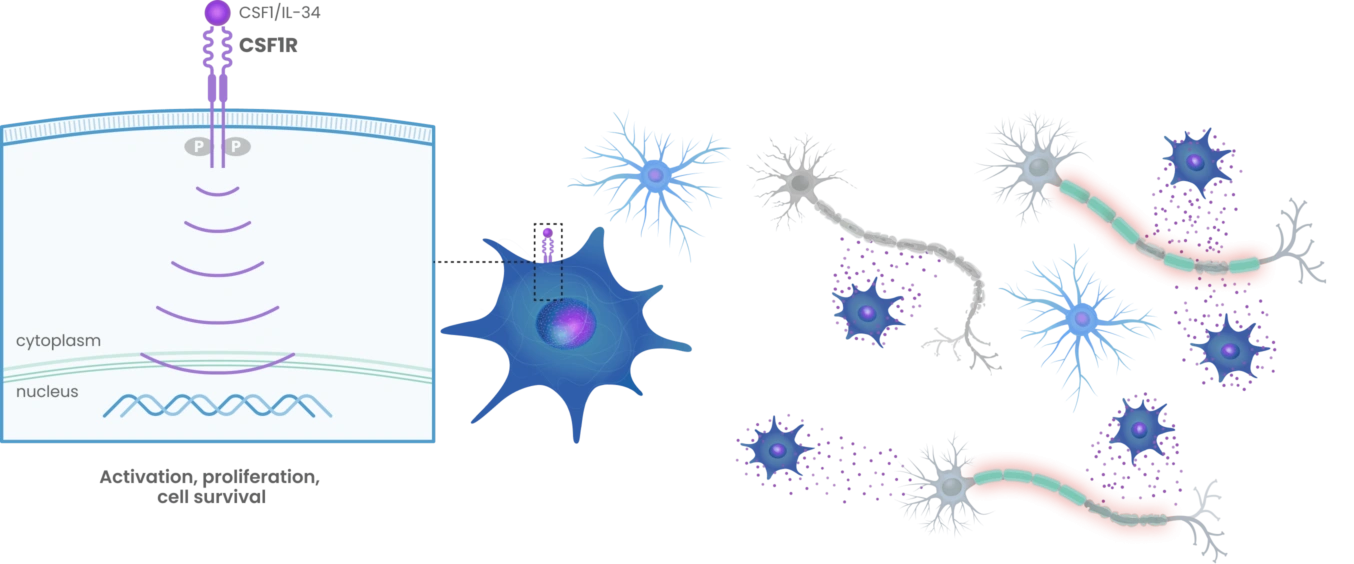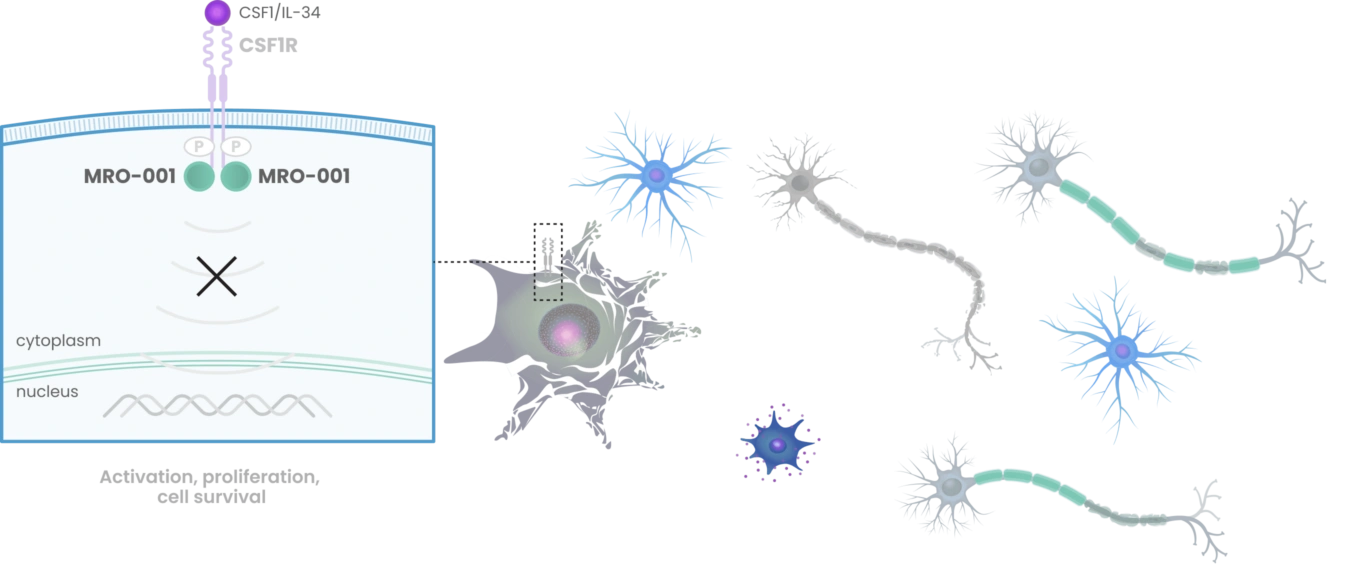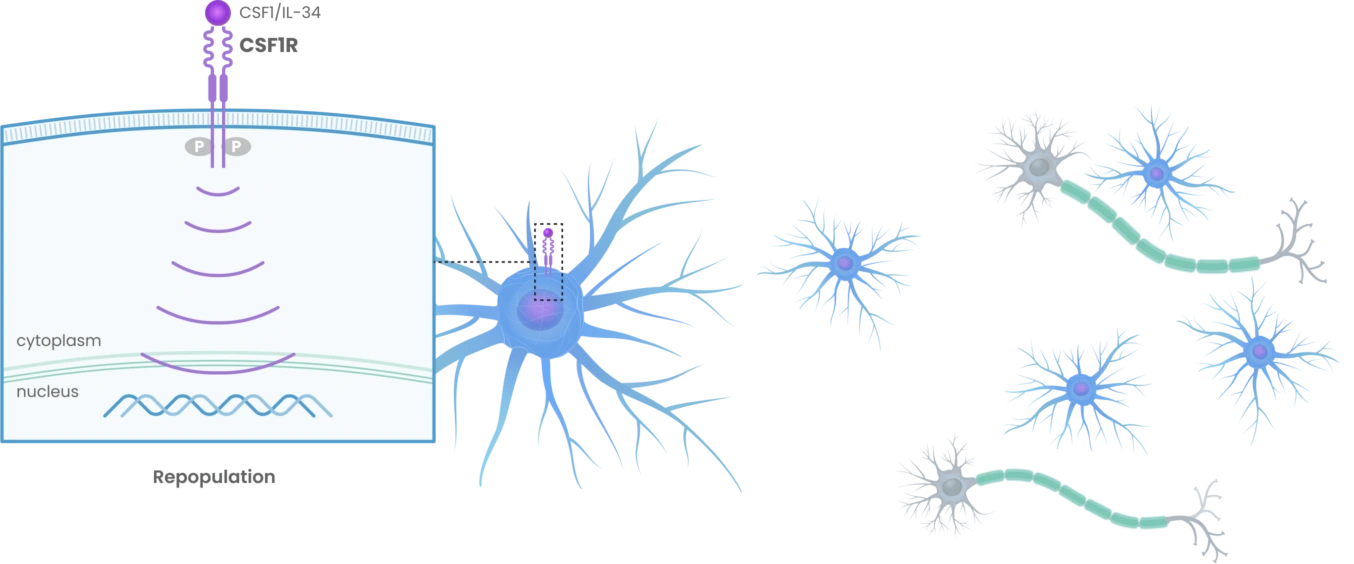CSF1R program
Microglia are immune cells exclusive to the CNS
Microglia are the resident immune cells of the Central Nervous System (CNS) responsible for acting as a first line of defense and promoting tissue homeostasis. Their extended processes surveil and interact with the local environment to protect and support nervous tissue. However, in various neurological diseases and conditions, microglia can become maladaptive, contributing to inflammation, neuronal damage, and disease progression rather than protection.
Myrobalan's CSF1R inhibitor mechanism of action

In healthy conditions, CSF1R signaling leads to a cascade of intracellular events that
maintains the population of resident microglia supporting a healthy tissue environment.

In neuroinflammatory diseases, microglia perpetuate their overactivation through a continuous cycle of cytokine release and uptake. This chronic activation can lead to myelin destruction and synaptic impairment, causing ongoing tissue damage.

Our potential best-in-class CSF1R inhibitor is an oral small molecule that switches off pathways controlling microglial activation, proliferation and survival, thereby reducing the number of overactive microglia.

Upon cessation of treatment, microglia rapidly repopulate, returning to a homeostatic, healthy state. We plan to exploit this microglial biology through intermittent treatment, removing chronically active microglia and allowing healthy cells to recolonize the tissue. Our aim is to employ biomarkers to develop an optimal treatment regimen for patients. In contrast to existing CSF1R inhibitors, which are repurposed oncology drugs, our molecule is uniquely designed to prioritize brain penetration and CSF1R selectivity, making it the first of its kind.